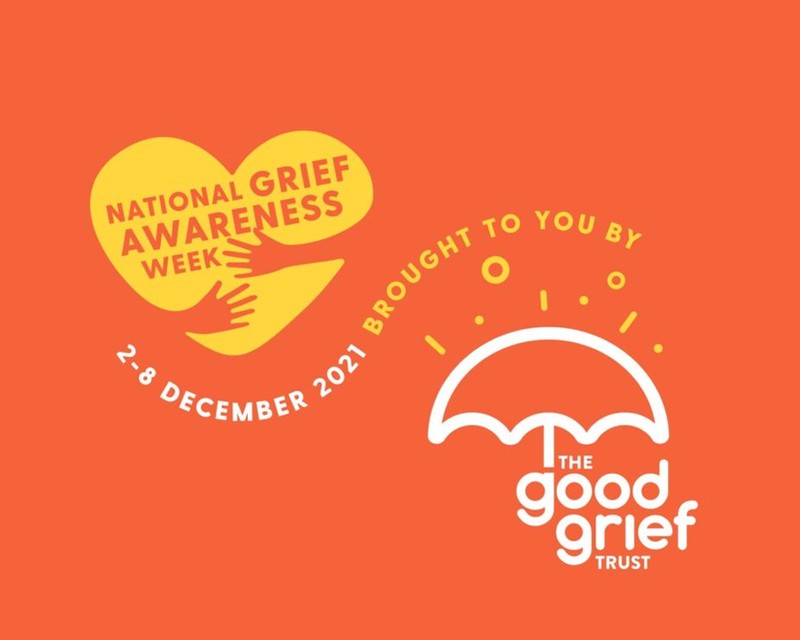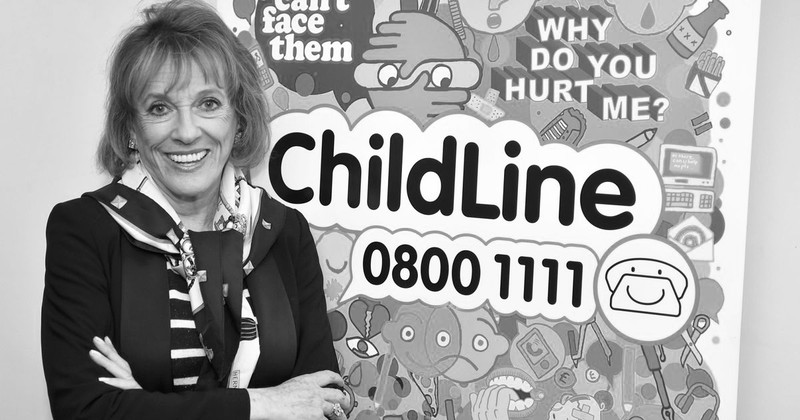
SheerLuxe Gold Meets Dame Esther Rantzen
GROWING UP IN WARTIME BRITAIN
I was born in 1940 into a Jewish family. Suffice to say, it was a very different time and things have changed so much over my lifetime. I can remember air raid sirens, ration books, gas masks…you name it. When we came back to London after the war was finished, our house had a radio, a television and a fridge. It sounds so silly, but back then, these were such luxuries.
There were plenty of other things which were so different, too. The milk used to arrive in glass bottles on a cart which was pulled by a horse; we never drank water out of a plastic bottle, it always came out of a tap; and there weren’t any motorways, so it took a long time to get anywhere – hence why people took more local holidays, and only sparingly. After studying English at Somerville College, Oxford, I went onto work at the BBC, and I can remember brand-new typewriters being thrown into a skip because they were suddenly obsolete. The computer age changed things radically.
Looking back on my own childhood, some of the changes haven’t been for the better – sometimes it’s best to go back to basics. For instance, when I was little, we used to get our deposit back for every empty milk bottle you returned. You also used to get your groceries packed for you in paper or paper bags – plastic just did not exist. Now, there are endless companies offering similar ‘recycling’ schemes to encourage customers to save the packaging. I’m a bit pessimistic about all the damage that’s been done to the environment during my lifetime, but I’m optimistic young people have the power to change the course of history.
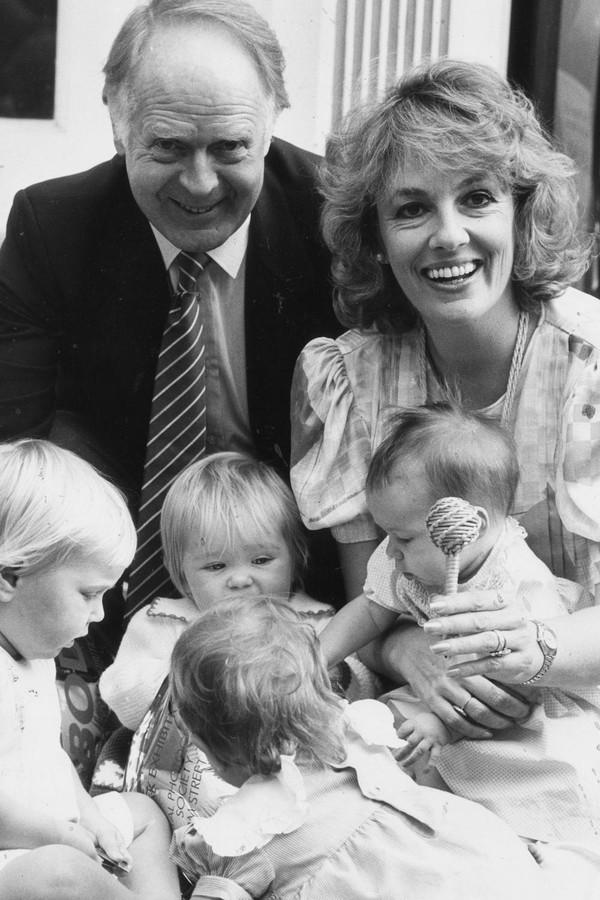
SETTING UP CHILDLINE
During my time at the BBC, I became the main presenter on a show called That's Life! It ran for 21 years until 1994, with an audience of more than 18 million. It went from being a consumer programme exposing things like faulty washing machines and dodgy salesmen, to investigating life-and-death issues, such as a campaign for more organ donors. But we also had humour, such as readings of amusing misprints sent in by viewers and comic songs written and performed by artists such as Lynsey de Paul and Victoria Wood.
That’s Life! was responsible for the launch of Childline in 1986. Having launched a tie-in helpline as part of the show, the demand was overwhelming. So I came up with the concept of starting a national helpline for children in danger or distress. It also prompted me to suggest to BBC controller Michael Grade that he make a programme to find better ways of detecting children at risk of abuse. That became Childwatch and ChildLine was an instant success – on that first night in October 1986, 50,000 attempted calls were made to the helpline. We now have 12 branches across the UK.
Childline proved how talking about your problems could make you feel so much better. Whatever it is, externalising the issue and getting it out there can sometimes make all the difference. Talking through your fears or anxieties gets it out of your head and it might not feel nearly as overwhelming as a result. Just being listened to is so empowering.
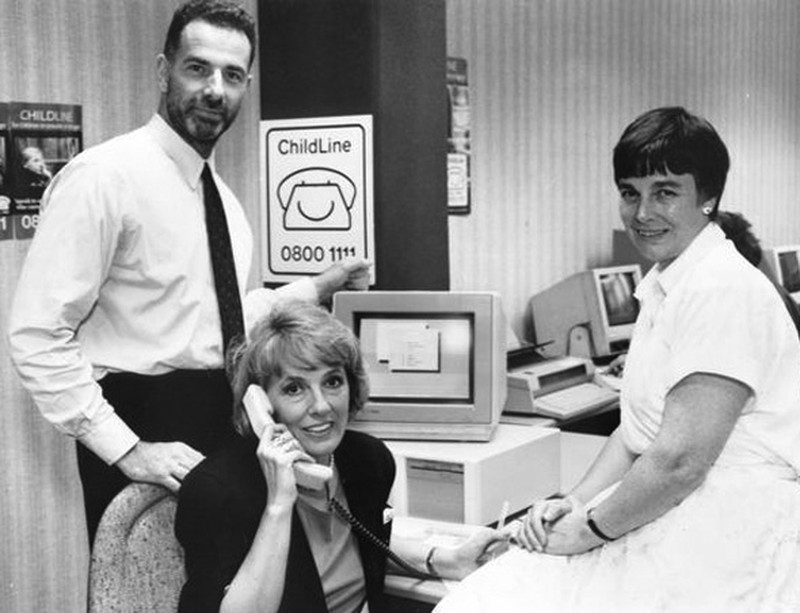
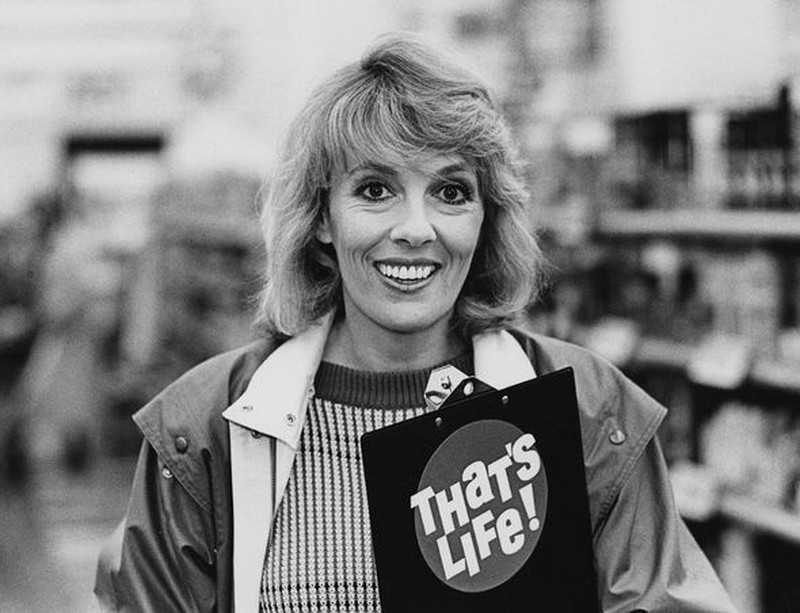
MOVING ONTO THE SILVER LINE
My own decision to downsize sparked the idea for The Silver Line. With the family home becoming too big for me, I decided to move into a two-bedroom flat at the age of 71. For the first time in my life, I was living alone, and really didn’t like it. No matter how busy I was, it felt more important to have someone to do nothing with, rather than lots of people to do something with. I would come home to an empty flat and there was no one to have a cup of tea with or talk to about the day. I ended up writing about this and the response was huge. Some people said I was brave to be so honest – loneliness has such a stigma about it – but others thought I was whinging. After all, they said, I didn’t have disabilities or reasons I couldn’t be out and about. We must remember lots of people live in solitary confinement once they get older.
Loneliness can sap your confidence as you age. I was asked to speak at a conference and took some of the letters along with me which people had written about this subject. I showed them to the experts there – some of whom I knew from my work in child protection – to learn more about this kind of stigma which was happening to a very specific cohort of people. In the same way we tried to liberate children to ask for help via ChildLine, we wanted older people to have their own means to reach more human contact. The experts told me to go for it – only this time, which was around 2012, I didn’t have a BBC film crew to back me up. Even so, I got myself a CEO, Sophie Andrews, and we decided to launch The Silver Line nationally on The One Show in 2013.
The telephone really does liberate people – of all ages. It gives them the channel to talk about their life experiences, some of which they might not want to tell anyone close to them and even less so face to face. Through the Silver Line we often hear two ‘b’ words a lot: ‘burden’ and ‘busy’. No one wants to be a burden on those around them, but older people often feel others are far too busy to listen or help.
You can ring The Silver Line any time, 24-hours a day. Sadly, demand tends to greatly outstrip resources so you may have to ring more than once but bear with us – there is someone there. Additionally, we have Silver Circles which act like conference calls, and Silver Friends which has been integrated into Age UK’s befriending service, in case you want to talk to the same person on a regular basis. Finally, Silver Connects is much more about activism. We can lobby on behalf of different people on a number of issues, for example, installing better access options for older people. It’s about trying to improve their quality of life – where we can.
LOSING MY HUSBAND DESMOND
Losing my husband showed me there’s a huge crossover between isolation and grief. Grief tends to isolate you and British people find it an incredibly difficult subject to broach. We’re all terrified of saying the wrong thing and those grieving feel very private about revealing their vulnerability. Earlier this year I ended up making a television show about how I had coped after Desmond’s [Wilcox] death in 2000, which was largely about denial. Our home in the New Forest was still full of his belongings and his photograph is still everywhere. The production team told me I was ‘stuck’ and took it upon themselves to help unstick me. They were ruthless but certain things I was pleased they made me do, like re-watching his memorial service. It was such a celebration of his life, and I felt quite uplifted after watching it. It showed me I was clearly quite bad at sharing my feelings – until someone forced me to, and I’m so glad I did.
The problem with grief is people are very keen to impose ‘rules’. By that I mean people have a very concrete idea of how people should grieve and they’re often not afraid to tell them. After a friend of mine got involved with a new partner after his wife died, a lot of people cut him off because they deemed it too soon. But people have to find their own way. With services like Silver Line, no one knows who you are, it’s completely confidential and it’s a safe space in which to share your feelings without any judgement. I know friends who have struggled with grief who, after calling Silver Line, have said they’ve finally been able to have a good night’s sleep.
National Grief Awareness Week is coming up. It’s a brilliant opportunity to show your support and try to spread a little bit of warmth through your community. It’s about giving people the opportunity to share their experiences, their stories and to let them know there are other people there if they feel like reaching out. Online you’ll find multiple resources out there to help you cope with grief – so hopefully there’s something out there to suit. Not all charities or organisations will be right for everyone. Some people don’t want to join groups or talk to someone, and that’s okay too. It’s worth remembering you might find solidarity in the most unexpected of places.
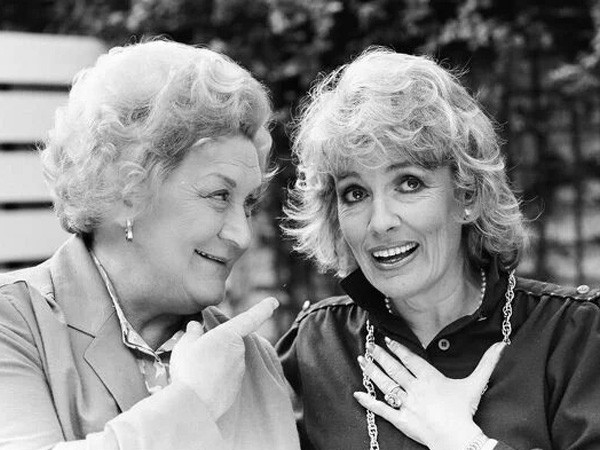
LIVING THROUGH THE PANDEMIC
For a lot of older people, the pandemic isn’t over. The government might have decided we can’t afford to be locked into any kind of restrictions, but they’ve left the rest up to us. For young people, that might feel quite liberating but, despite now having three jabs, a lot of older people are still trying to be very cautious. A lot of Silver Line callers have said they’re grateful the rest of the world now understands what it means to be isolated but for older people, Covid-19 is a much more serious illness, and it’s made many people in that age bracket really afraid. For example, I live with my daughter who has ME. If she catches anything, it could make it so much worse. It’s a confusing time but it’s up to the older generation – and our wisdom – to set a cautious example.
FINDING THE RIGHT ROLE MODELS
There’s an interesting paradox about older people becoming invisible in society. A lot of people say it’s true, and yet there are some fantastic role models out there proving what an asset we are. David Attenborough, Captain Sir Tom Moore, the Queen – can you imagine anyone saying the Queen was past her sell-by date? And yet, quite often, when you look at someone over 70 in a magazine or on television, they look 35 and tell you it all comes down to drinking lots of water and doing Pilates. It’s rarely the whole story. I’ll always remember Zsa Zsa Gabor’s mother going into hospital for a facelift and telling the surgeons, “If I die on the table, make sure you finish the job.” It’s a sad indictment. Thank God for people like Mary Beard, an older woman who isn’t afraid to let her brain do the talking and share her sense of humour – that’s what people are drawn to. Even so, there could be far more age-blind programmes on television than there currently are if you ask me.
My own approach to ageing goes like this: on my 50th birthday, I climbed out of bed, put on a nice hat and necklace – nothing else – and ran round the garden. The neighbours might have laughed, and while my husband Desmond was initially cross, he ended up taking lots of photographs! I’ve still got them somewhere… When I was 80, I decided to do the same – just because I could. I might do the same when I turn 90, who knows? I’ve got some time to think about that one…
National Grief Awareness Week runs from 2nd to 8th December. This year, reach out and #spreadsomewarmth to all communities across the UK affected by bereavement. On the final day of the week, organisers will ask for a minute's silence at 6pm, as per last year. Visit TheGoodGriefTrust.org
The Silver Line is the only free confidential helpline providing information, friendship and support to older people, open 24 hours a day. Childline provides free and confidential help for young people in the UK.
DISCLAIMER: We endeavour to always credit the correct original source of every image we use. If you think a credit may be incorrect, please contact us at info@sheerluxe.com.
